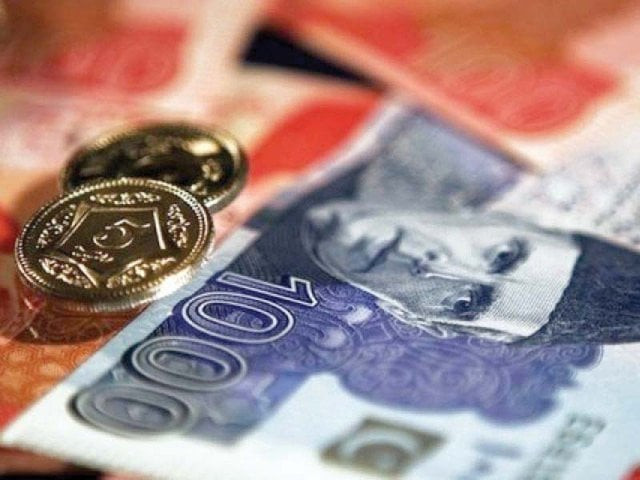Pakistan needs to take steps to address fiscal issues: Fitch Ratings
Ratings agency official says CPEC may be a point of discussion in IMF negotiations

Ratings agency official says CPEC may be a point of discussion in IMF negotiations. PHOTO: FILE
Speaking at the rating agency's Global Sovereign Conference in Hong Kong, Zook discussed the challenges faced by Pakistan following general elections.
Fitch, one of three major international rating agencies, put Pakistan on a negative outlook in January, mainly due to rising external pressure as well as deteriorating fiscal position.
Citing the tough macroeconomic challenges facing Pakistan, Zook said the country's current account deficit had more than tripled in the past three years. This is partially due to imports related to the China-Pakistan Economic Corridor (CPEC), but also due to rising consumer goods imports and more recently oil prices.
Fitch revises outlook on Pakistan’s ratings to negative
He was of the view that attracting external financing would be among the key issues for the new government.
"They have large gross external financing needs coming due over the next year due to the large current account deficit as well as rising external debt payments. So, there will be a bit of the gap that they have to fill," he said.
To combat the challenges threatening the economy, the State Bank of Pakistan has raised key interest rate by 175 basis points since January. Additionally, it has let the rupee depreciate massively on four separate occasions since December 2017, leading to about 17% weakness in the rupee.
However this, according to Zook, "does not appear quite enough to stem some of these deteriorating fiscal issues".
He said Pakistan was searching for financing from a number of sources, namely China and Saudi Arabia, and may possibly have to turn to the International Monetary Fund (IMF) for yet another programme.
Pakistan’s external financing risks piling on: Fitch Ratings
Talking about the role of CPEC, he said it may come into play when Pakistan turns to the IMF for a bailout.
A couple of months ago, US Secretary of State Mike Pompeo stressed that the US would closely be watching IMF financing for Pakistan.
"They don't want it to simply go to repay some of the loans to China," Zook remarked, adding, "This could be a flashpoint in negotiations for an IMF programme and could perhaps lead to further conditionality for Pakistan as part of the programme."
However, he conceded that Pakistan did need infrastructure financing and the Belt and Road Initiative, in Pakistan's case CPEC, was a good way to bridge the infrastructure gap.
"Whether this will pay off is yet to be seen and this is one of the broader issues that countries in the region are facing when it comes to the BRI."



















COMMENTS
Comments are moderated and generally will be posted if they are on-topic and not abusive.
For more information, please see our Comments FAQ